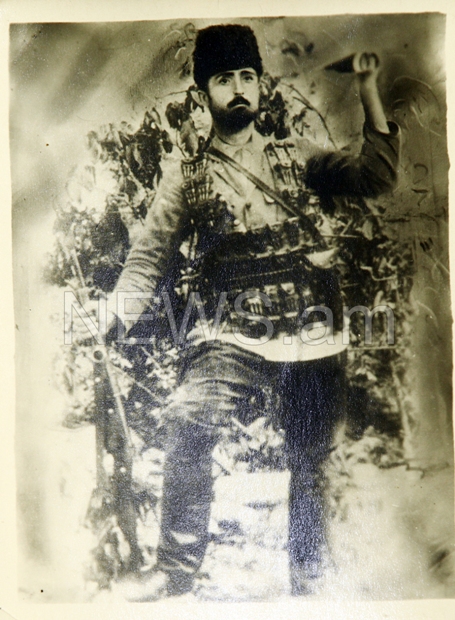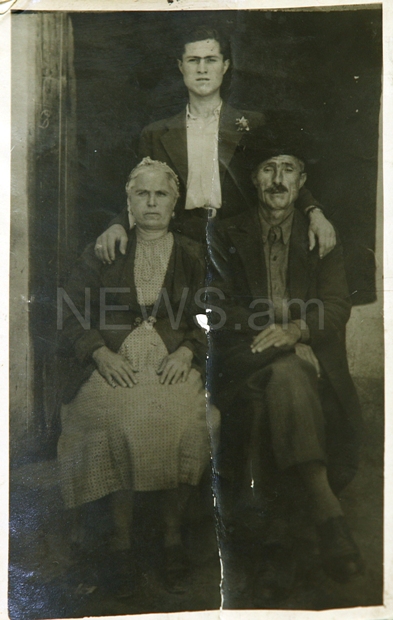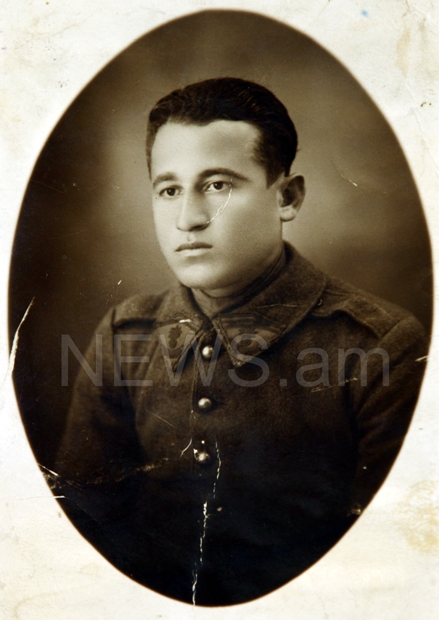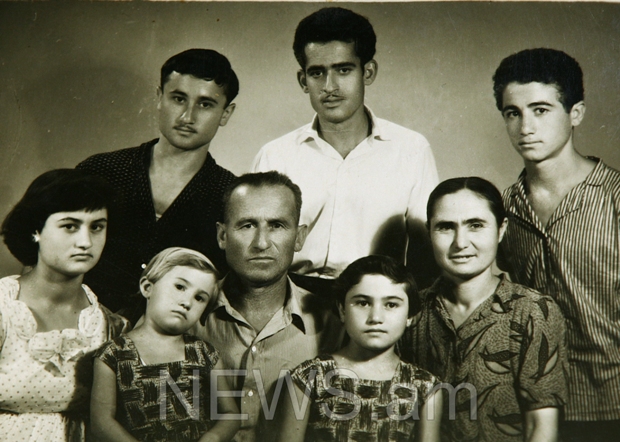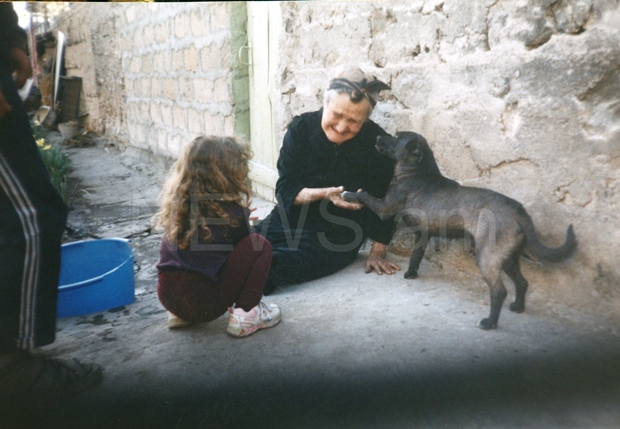
By Ani Afyan
Armenian News-NEWS.am continues publishing stories within "Survivors" project launched ahead of the centennial of the Armenian Genocide perpetrated in the Ottoman Turkey in 1915-23.
“Survivors” is the stories of common people who lost their childhood and homeland.
“Survivors” is a hundred years of memories and pain, hundred years of expecting retribution.
“Survivors” are a diminishing group of people who won't lose their hope for acknowledgement of their pain.
“Survivors” is 101-year-old Nektar Alatuzyan.
Komitas street in the center of Etcmiadzin is quiet and peaceful. Only dogs barking and wood splitting is heard. It must be someone cutting wood. Spring came in winter this year, but apparently, they still need wood to save from the residual cold (PHOTOS).
Coming closer to the house number 9, it became clear that someone is cutting wood here. The gate is left ajar, and we enter the yard as uninvited guests. What appeared before our eyes left us speechless.
A small, skinny, crooked elderly woman raised the ax high and smartly lowered the shining blade on a piece of wood.
When she saw us, she stopped, took a deep breath and continued to work as if nothing had happened.
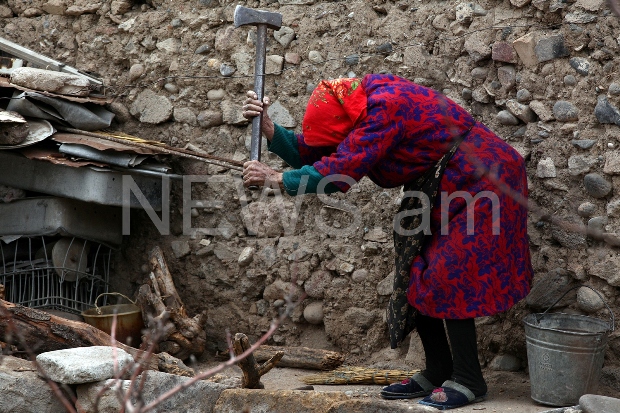
“Do not stand near the gate, come in,” a young woman said coming out of the house.
Several minutes later we learnt her name was Geghtsik, while the woman cutting wood was her grandma – 101 years old Nektar Alatuzyan.
“Grandma has had a difficult, but interesting life,” Geghetsik said, laying the table.
Nektar Alatuzyan, née Abdunuryan, was born in 1914 on the Mediterranean coast, in the village of Hdrbek, located at the foot of Musa mountain. In the summer of 1915 residents of Hdrbek and six neighboring villages got an order to pack their things and prepare for deportation. Some Armenians obeyed the decision of the Turkish authorities, the rest collected their belongings and climbed the mount and organized self-defense. Among them was the Abdunuryan family: Tovmas, his brave wife Ovsanna and one-year-old Nektar.
“Soon the Turks attacked the mountain. Grandma said they defeated themselves as much as they could. Women armed with pitchforks were fighting next to their husbands and brothers,” Geghetsik said.
Tovmas Abdunuryan
The defense of Musa mountain continued for 53 days. The Armenians heroically resisted, but the forces were not equal.
Sometimes they sank into despair, but they continued to believe that God is on their side, and any of the passing ships will come to help them.
Such a ship was French vessel. The defenders of Musa mountain were accepted aboard and were deployed to the Egyptian city of Port Said where they remained until the end of the First World War. In 1919, a year later Hatay province came under the French protectorate, the Armenians returned to their villages.
“Coming back to the native land they saw that Turks occupied their house. With the help of his 12 faithful friends, grandpa Tovmas forced the Turks to leave Hdrbek, and hung guns on the wall of his house as a memory,” Geghetsik said.
Tovmas and Ovsanna Abdunuryans
Once police came to the house of the Abdunuryans.
“Grandpa Tovmas was accused of a murder and then they searched the house.”
Seeing police in the courtyard, young Nectar wrapped a gun hanging on the wall into a rug and sat on it with the other children. After a fruitless search, the police left. But her idea did not help his father escape the prison.
In the 20s, Tovmas Abdunuryan was sentenced to 101 years in prison, but he spent in jail only 13 years.
While her father was in prison, Nektar brought him food and told all the news of the village.
In 1938 she got married to Tigran Alatuzyan – an Armenian officer serving in the French army.
Tigran Alatuzyan
“Grandma says she had many admirers, but her father liked Tigran most, as he played uda [musical instrument –ed].”
Despite being a man of sharp temper, Tovmas was kind-hearted man and liked music much, said Geghetsik.
In 1939, when the region was annexed to Turkey under the agreement between France and Turkey, the locals had to leave their homeland once again. They would never be able to return to their homes.
“First they settled in Lebanon, in Anjar, then moved to Beirut.”
In Beirut, Nektar gave birth to Joseph, Marie and Yesai. In 1947 they decided to move to Eastern Armenia.
“Grandma and her family lived in Tsakhkadzor for some time, and then moved to Echmiadzin.”
In Armenia, Nektar gave birth to two girls - Josephine and Zarine.
Ovsanna Abdunuryan died in 1958, Tovmas died eight years later.
“He often recalled his childhood and the native village before his death. He wanted to be buried there, next to his ancestors.”
Grandma Nektar has 12 grandchildren, 33 great-grandchildren and eight great-great-grandchildren. She tells them about Hdrbek and urges to never forget their roots and the history of their people.
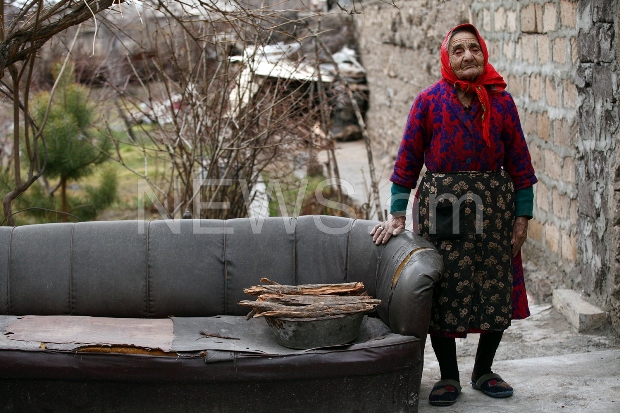
Photo by Arsen Sargsyan/NEWS.am
The previous articles in “Survivors” project are:
Khosrov Frangyan: 100 years of expecting repentance
Arevaluys Amalyan: 100 years of expecting repentance
Margarita Mkhitaryan: 100 years of expecting repentance
